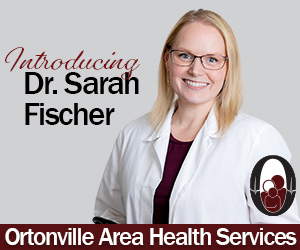 Last week was one for the books.
Last week was one for the books.
Education Funding
In a historic vote that will affect generations, the legislature passed the ½ cent sales tax increase for teacher pay. First the House passed the measure by a single vote, and then last week the Senate passed it by two votes. This issue dominated the legislature and resulted in some of the most heated debates ever seen in Pierre.
There are two additional bills in Governor Dennis Daugaard’s Education Reform Package that have not yet received final passage. Senate Bill 131 establishes a new funding formula based on a target teacher salary of $48,500 and a target teacher-to-student ratio based on school size. The ratio is 12:1 for schools with under 200 students and 15:1 for schools with over 600 students. The ratio varies between 12:1 and 15:1 for schools between 200 and 600 students.

Senators debating the education bills
For example, if a school has 199 students, state funding would be 199 students x $48,500 = $9,651,500. Then add 29 percent for benefits and 31 percent for overhead expenses. Additional amounts paid to schools for English language learners and sparsity does not change under the new formula.
The other education bill, Senate Bill 133, creates innovative education options for our school districts such as shared school district services, educator mentoring for new teachers and certification reciprocity with other states.
The Student Privacy Act
Seventy-five percent of lawmakers from both chambers of the South Dakota Legislature passed my bill, the Student Privacy Act. I wrote the bill because of problems in other states with transgender students demanding unrestricted access to showers, locker rooms and restrooms in public schools, and my strong belief that we must keep all South Dakota children safe.
If signed into law, the bill simply would have required boys to use boys’ facilities and girls to use girls’ facilities. For transgender students, schools would make a reasonable accommodation to meet their needs.
I received hundreds of letters from parents who supported the bill. Family, human rights and freedom advocates praised the bill, and I received support from nearly a hundred South Dakota pastors from numerous denominations. Bishops Robert D. Gruss and Paul J. Swain wrote: “We the bishops of the Roman Catholic Church in South Dakota support House Bill 1008 because it protects the rights and respects the innate dignity of all persons in our schools.”
Ultimately, after significant pressure from outside groups, Governor Daugaard vetoed the bill. I’ll take time to think about how to proceed. Some people are talking about possibly putting it on the ballot to let the voters of South Dakota decide.
Other Hot Topics
Medicaid Expansion – This week the governor recommended the legislature not move forward with Medicaid expansion during the 2016 session. Although the new federal policy is a sign that the governor’s proposal could possibly move forward, the federal policy change came so late in the session that there isn’t sufficient time to study the issues, craft a proposal and debate how to proceed. The work with the federal government, Indian Health Service and medical providers will continue. I expect the issue will either be the topic of a special session or the centerpiece of the 2017 Session.
Prohibition against Selling Fetal Body Parts – The House unanimously passed Senate Bill 24 to prohibit the sale of human fetal body parts. This bill will make it a Class 6 felony to use any tissue, organ, or body part of an unborn baby who has been subject to an induced abortion.
Fetal Pain Abortion Standard – Both the Senate and the House State Affairs Committee voted to approve a new fetal-pain standard for when abortions should be illegal in South Dakota. The legislation would protect unborn babies from abortions starting at 20 weeks post-fertilization, when they are capable of feeling pain. Current law sets the cut-off at 24 weeks. The bill recognizes that unborn children are human beings, deserving of protection from pain. The legislation now moves to the full House for consideration.
Transfer of Alcohol Funds from State to County – Under the proposal, counties would receive a 25 percent share of the alcohol beverages fund that is currently split between cities and the state. This amounts to an additional $3.8 million to counties, including $124,624 to Brookings County; $108,257 to Codington County; $29,279 to Deuel County; and $39,615 to Grant County. The Senate passed the bill 28-5 and the House committee passed it 13-0. It now moves to the House floor. I plan to support it.
Allowing Alcohol on College Campuses – The legislature passed Senate Bill 102, which would allow the Board of Regents to oversee the sale of alcoholic beverages at certain events such as athletic activities, performing arts events, or receptions. The Senate passed this bill 18-13 and the House passed it 42-26. It now awaits Governor Daugaard’s signature. I don’t believe we should authorize alcohol on our campuses. I voted no.
Once again, thank you for the opportunity to serve you. Please keep in touch with me about the issues that are important to you. I can be reached on my cell phone at (605) 868-9010 and by email atrep.deutsch@state.sd.us.













No comments so far.
Be first to leave comment below.